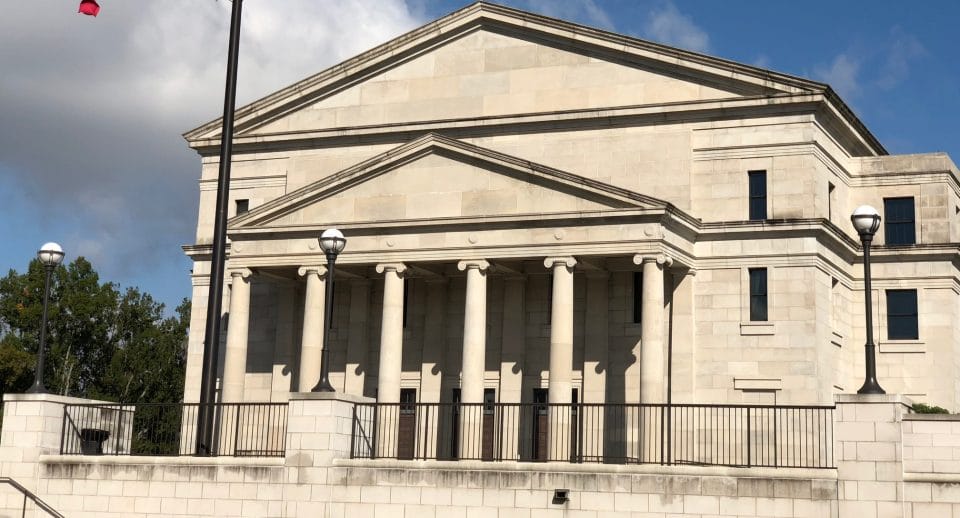The saga of the Ridgeland Costco development continues as the Mississippi Supreme Court has blocked the development by overturning local zoning ordinances which would’ve paved the way for the big box store.
Those against the development argued that the city of Ridgeland changed their zoning ordinances for the property to accommodate Costco, and the Supreme Court agrees. In the ruling, the judges stated that the changes were “entirely designed to suit Costco” and the ordinance changes were overturned.
The original zoning ordinance for the property on Highland Colony Parkway did not allow for a store of Costco’s capabilities to be located there, and that’s where the public outcry began. Karen Bush began circulating a petition to stop the development of the store, and she says the number of signatures reached nearly 2,500 people.
“This is an effort from a large number of citizens. This was not one or two neighborhoods, this involved a lot of people that cared about the future of Ridgeland and responsible development in the city of Ridgeland,” Bush said. “They were opposed, not against Costco, but against the city for breaking the law.”

Court documents show that those against the development accused the city of trying to hide the project and that they “nicknamed the Costco project ‘Project Santa Claus’ in order to keep the venture confidential from the public.”
“They did it with no basis, and they did it just for Costco and you can’t do that,” Bush said. “It came to light that they had been planning it for some time, and they denied it after we realized that they had rezoned the property and done it illegally. The city continued to deny it; obviously, they didn’t want to get caught.”
The court’s decision also outlined the purpose of rezoning and what must occur for the rezoning of a property to be considered lawful.
“Before property is reclassified from one zone to another, there must be proof either, (1) that there was a mistake in the original zoning or, (2) the character of the neighborhood has changed to such an extent as to justify rezoning and that public need exists for rezoning.”
In the ruling, they say that there was no evidence in a shift of any kind, and they concluded that the rezoning was done without a true root cause and that the city “circumvented the “stringent procedural requirements for rezoning.”
Bush went on to say that increased traffic flow was another concern shared by those opposed to the development. The property was a defined as a C-2 zone and the court documents show the intended use for such a zone.
A. All commercial uses allowed in the Low-Intensity Commercial (C-1) District, subject to all C-1 district regulations.
B. Business-related retail and service establishments first permitted in Low-Intensity Commercial (C-1) District (no size restrictions).
C. Commercial uses in which services performed and merchandise offered for sale are conducted or displayed entirely within enclosed structures, including department stores (full line or discount) and furniture and appliance stores. D. Shopping centers located on minimum sites of three (3) acres on an existing or proposed arterial street as shown on the adopted Thoroughfares Plan; shopping centers may contain any of the uses permitted outright in C-2 zones. E. Strip Center Developments.
F. Hotels and motels and related restaurants.
G. Broadcast studios (with transmitting towers located elsewhere).
H. Commercial healthcare facilities, such as dialysis centers, physical therapy facilities, diagnostic and imaging facilities, 24-hour medical clinics, etc.
I. Veterinary clinics and pet shops, excluding outside runs (kennels) subject to Special Use Site Plan Standards in Section 600.14.F.
J. Mortuaries, funeral homes, mausoleums, chapels and related facilities subject to Special Use Site Plan Standards in Section 600.14.F.
K. Public streets, highways, private streets, and alleys.
L. Free standing, enclosed restaurants including fast food and fast casual restaurants with no drive-thru (excluding drive-in restaurants).
As one of the more vocal individuals in the effort to block the development of the Costco, Bush says that there is not a specific recommendation that she has for an alternative to the store, but that it should fall into the parameters of a C-2 zone. This process began back in 2014, and while it’s unclear what is next, she says that she hopes the city abides by the court’s ruling.
“I would hope that they will follow the law, and require the developers to put something on this property that meets the zoning requirements for its zone,” Bush said.
Mayor of Ridgeland Gene McGee has supported the project, and was disappointed by the court’s ruling.
“First of all, I have a deep respect for the Supreme Court. Second of all, I am very disappointed in the decision and, obviously, I don’t agree with it,” Mayor McGee said.
Attorney for the city of Ridgeland, Jerry Mills, was similarly let down by the court’s ruling, but he says that this does not signify the end for the development, and while there is not a set plan to move forward, Mills says that their response will come sooner rather than later.
“It’s got to be fairly soon because there’s a 14-day time limit on certain procedural steps,” Mills said. “The decision does not become final until 21 days after the issuance of the mandate, so there are still procedures in the Supreme Court that we need to explore.”
The developer of the project, H.C. Bailey Developers, was not immediately available for comment.




